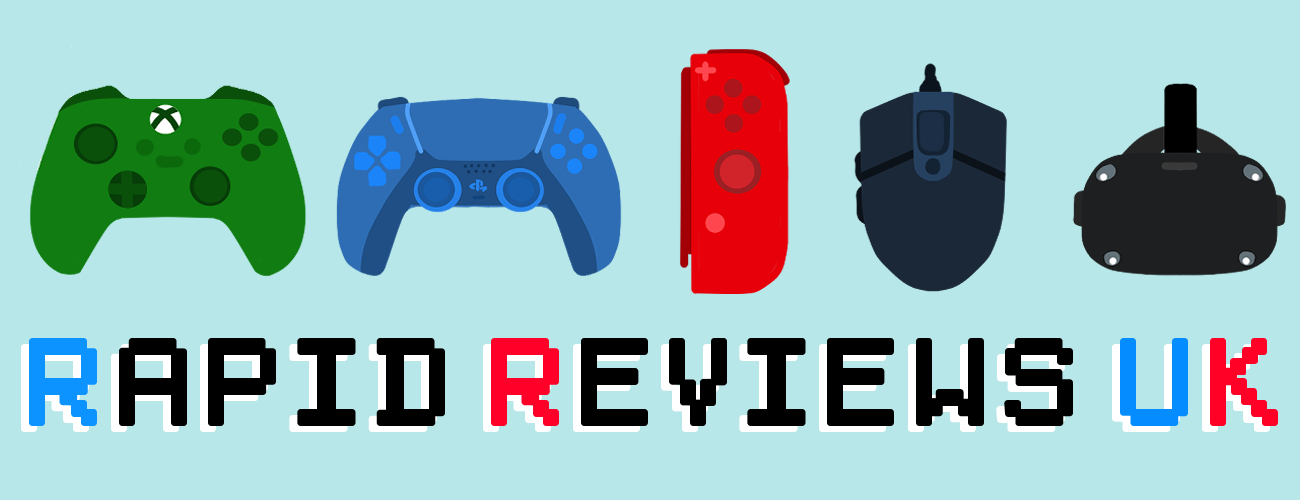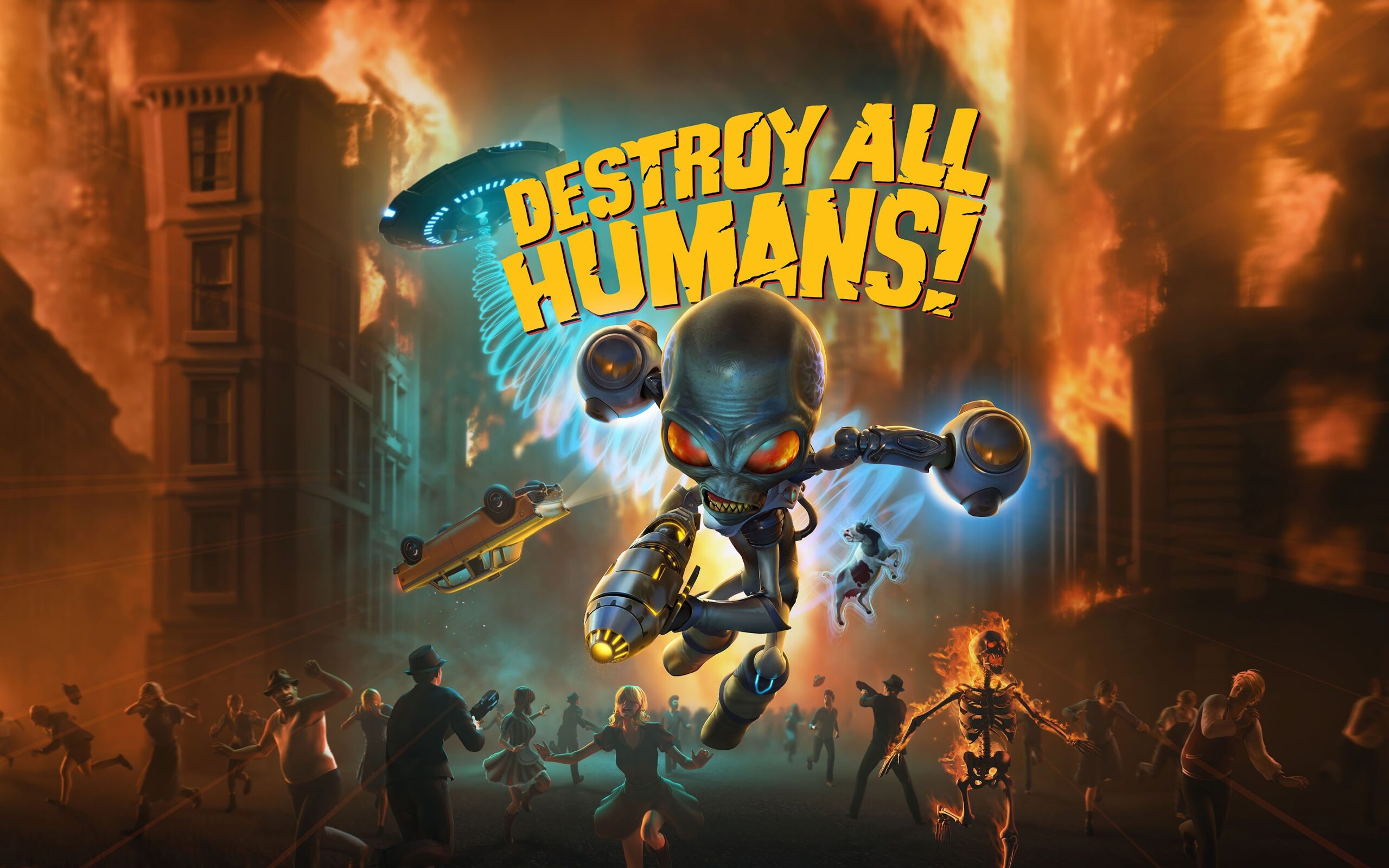Radial-G: Proteus Rapid Review
Fast Facts
Title: Radial-G: Proteus
Developer: Tammeka Games
Publisher: Things3D Ltd
Website: https://www.things3d.com/#radial_g_proteus
Genre: Action, Arcade, Racing
Platform: Oculus Quest
Age Rating: PEGI 7
Release Date: 17/12/2019
Price: £9.99 – Rapid Reviews was very kindly provided with a review code for this title.
Harking back to older titles like F-Zero and Wipeout, Radial-G: Proteus brings the fast-paced sci-fi racing genre to VR. It’s not hard to find the similarities, however, it’s the presentation where Radial-G’s latest instalment offers unique mechanics and presentation that is not hard to ignore.
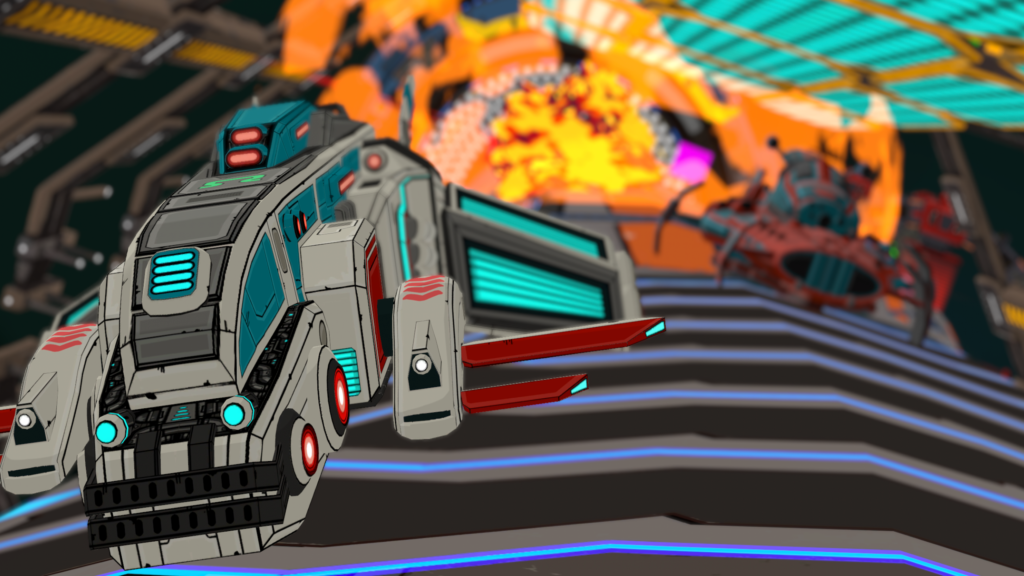
Radial-G: Proteus is a shining example of changing the inherent design of a game to conform to the system hardware. Rather than having the darker, grittier look of its predecessors, it instead opts for a more lighthearted cell-shaded style which not only fits the setting of a futuristic dystopia but works well in VR as its simplicity complements the simplistic style of gameplay Proteus has to offer.
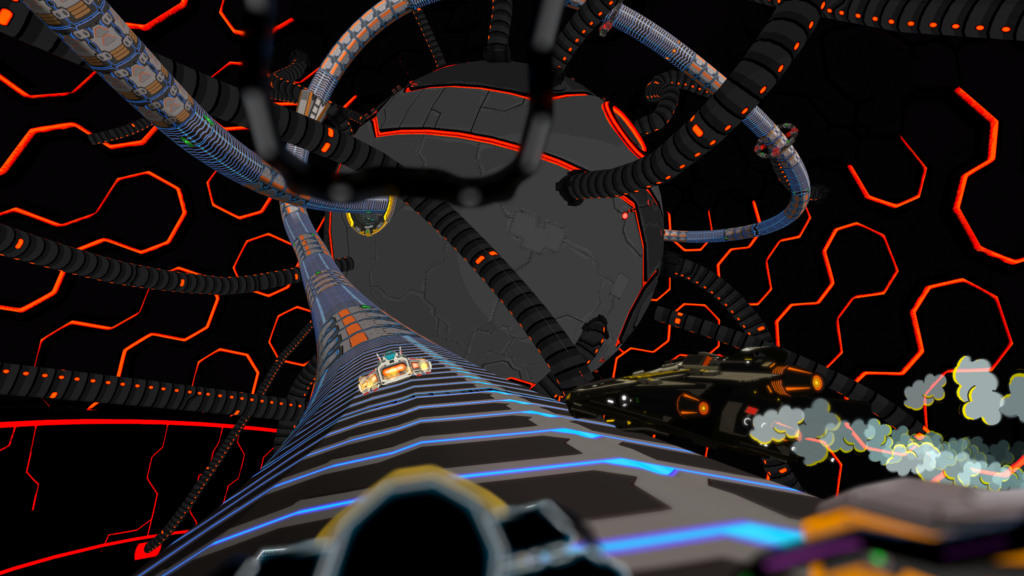
The game is split into three categories: Career, Race and Lap-Attack. Career has you go through specifically designed courses through ranges of different race types such as combat races, championship races and more. Race has you modify settings to your will to set up races to your own specifications and Lap Attack has you beat lap times to see how fast you can complete a course – great for acclimating yourself to the game’s controls and gaining skill.
These modes are fine, and I was able to finish Career off fairly quickly, leaving me to my own wits in Race to mess around with unlocked vehicles and challenge myself. The end of Career does allow you to fight a boss, which was a cool touch as racing ‘bosses’ are often underwhelming, however, the sense of scale and fun I had here was that akin to a boss fight in non-racing games.
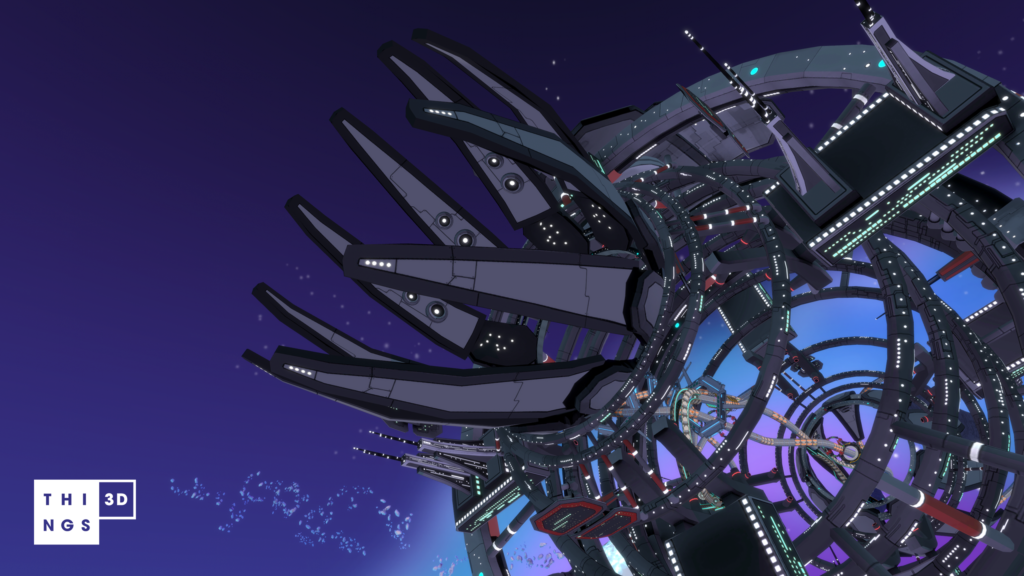
Radial-G: Proteus’ controls have two distinct styles, standard analogue stick controls as found on games like Mario Kart and other console arcade racing games and Motion. These motion controls have you grip onto two handles and pull them back and forth to steer, similar to something like a motorcycle. I found this mode of control to be very difficult and finicky to get used to, and so I played through with the standard controls, how I do wish we were given a normal steering wheel option for motion controls, though.
You speed through tubular tracks at high speed, avoiding obstacles whilst using boosts, weapons, ramps and shield generators to your advantage. It’s the definition of high-octane and in VR looking up and around to see the track twist and turn around you is a fun and intuitive way of experiencing a high-speed chase, just beware as this quick gameplay paired with sharp turns and rotations can be the definite cause of some motion sickness. I found this game best played in small sittings, completing races one at a time and then having a break – graphically and technically, it can be a bit straining on the eyes.
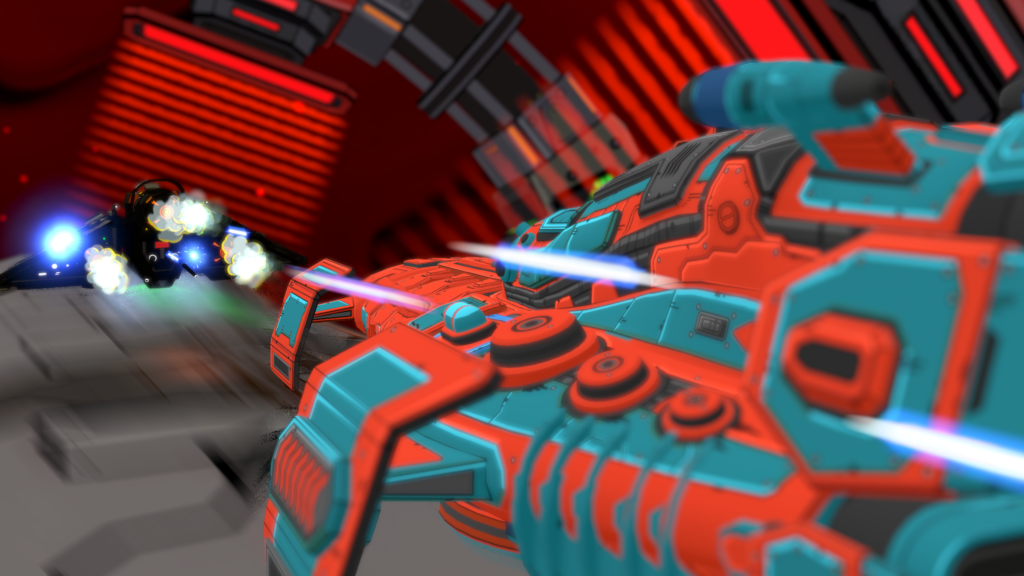
Radial-G: Proteus’ soundtrack consists of bass-heavy electronic music, and whilst it fits the setting and gameplay, I found it to be a bit intrusive and lacks a lot of charm. If you played me any of the songs I would never guess it belonged to Radial-G over any other sci-fi racer.

All in all, Radial-G: Proteus does a good job of letting the player experience high-octane sci-fi racing, and whilst some of its presentation can seem underwhelming, it delivers a fun and polished experience – I just wish there was a bit more depth, as I felt the game became extremely repetitive before too long.
Rapid Reviews Rating

You can purchase Radial-G: Proteus from the Oculus Store on the following link, https://www.oculus.com/experiences/quest/2736496286381191/?locale=en_GB
